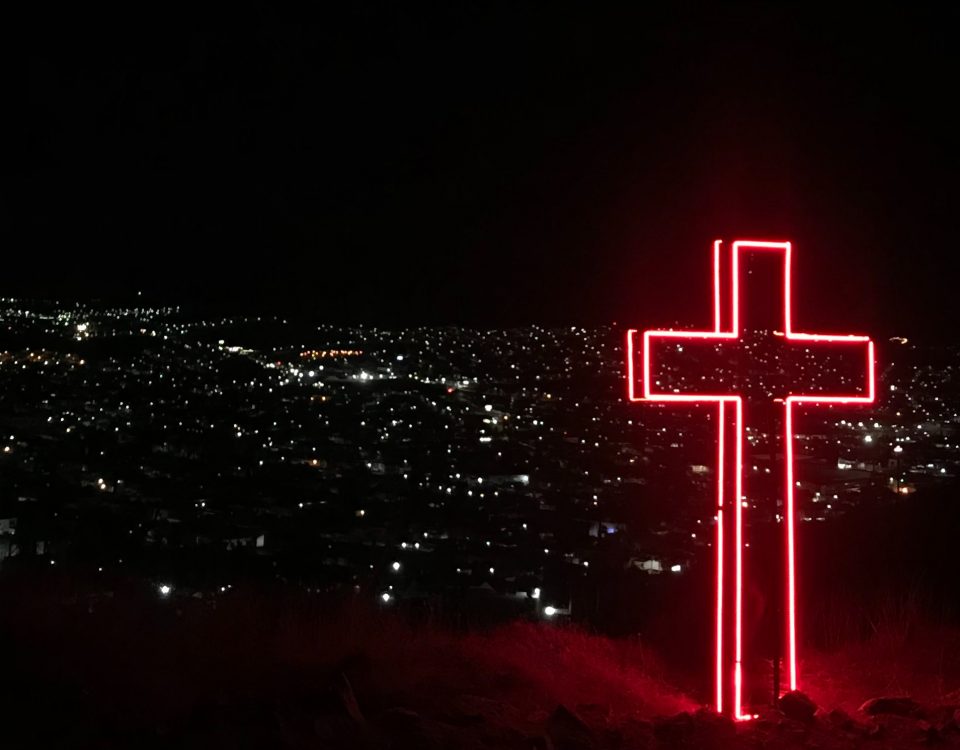
Transformed Pulpits Lead to Transformed Communities
June 5, 2018
Disciples Don’t Make Themselves: Planning Discipleship
June 26, 2018Caring for Your Pastor

Reposting with kind permission from the Table Podcast.
Darrell Bock: Welcome to The Table, where we discuss issues of God and culture. I’m Darrell Bock, Executive Director for Cultural Engagement at The Hendricks Center at Dallas Theological Seminary. And our topic today is “Pastoral Care.” Not the care that pastors care but care for the pastor.
And I have two distinguished guests with me today, Bruce Ewing, who is Special Assistant to the President and Alumni Relations here at Dallas Theological Seminary. Welcome, Bruce.
Bruce Ewing: Thank you.Darrell BockAnd Joe Allen, our distinguished Chaplain at the Seminary. Just finished rookie year as Chaplain here at Dallas. So, well done, Joe. You’re our Chaplain Rookie of the Year, and we appreciate having you with us.Joe AllenThank you.Darrell BockYeah, we are going to look at pastoral care and thinking about really how the pastor can care for himself, how he can avoid burnout, those kinds of issues.
As we have done our ministry at The Hendricks Center, we have found this to be a repeated theme. And Bruce has kinda slipped into dealing with this might be the way to say – that’s the secular way to say it; he’s been led into this area in one way or another.
And, of course, the chaplaincy and pastoral ministry experience that Joe has brings this to The Table. So, let’s tell people a little bit how you became concerned with this as an issue. And, Bruce, I’ll let you start. How did you come to – literally, you’re traveling the country these days, interacting with pastors and helping them with where they are and the challenges of the pastorate.
Bruce Ewing:You know, when I started out, I had no idea what I was in for, and it seems like as my wife and I do this together, which really has worked out well because we too often forget the wives in the process. And I’ll tell you what right now, we’ve got some of the toughest gals I the country, who really stand by their man.
But every appointment was God-ordained. I mean it – we walk into situations that pastors are struggling with things that they don’t have the freedom to share with a lot of people. Trust is a big issue. Joe and I were talking about that a while ago. Who do I trust? Because usually what you say can and will be used against you in some form.
Darrell Bock: Yeah, that’s right.
Bruce Ewing: So, it’s really been an eye-opening experience, alarming at times, but very encouraging most of the time.
Darrell Bock: Now, how long have you been functioning as a Special Assistant in the Alumni Relations Office?
Bruce Ewing: It’s about four years now. I was pastor of Fellowship Bible Church in Tulsa for 33 years. Prior to that, I worked in a denominational setting for three years. Before seminary, we were in Crusade for five years.
Darrell Bock: Oh, wow.
Bruce Ewing: So, we had a pretty broad range of experiences before we went into this, and then after I retired from the church, Dr. Bailey called and asked if I could be his assistant.
Darrell Bock: That’s great. So, literally, part of your role is to visit churches around the country and just kind of rally around the pastor if I can say it that way?
Bruce Ewing: You got it.
Darrell Bock: Yeah. And so – and you’ve been doing this four years, and you’ve literally spanned the globe – huh? – in terms of the country, in terms of pastoral care.
Bruce Ewing: Put a lot of miles on.
Darrell Bock: Yeah. That’s great. Well, we’ll come back and talk about the details in a second.
Joe, what about you? What’s your experience? Obviously, start with your pastoral experience.
Joe Allen: Pastored several churches, most of ’em in Georgia, after graduating from Dallas in 1988. And had a conversation with Dr. Bailey at the Dead Sea, when I went on a trip, and just happened to mention I might be interested in being the Chaplain, if that position ever came open. I had no idea that Chaplain Bill was retiring. No idea.
And Dr. Bailey said, “Well, get me your résumé and we’ll talk about it.” And I did. As a matter of fact, I had the résumé on my desk at my church. I was very, very happy at the church where I was serving. And we thought we’d retire there.
Had the résumé – it was about a month after the trip. I’d gone on a trip to the Holy Land, obviously, with Dr. Bailey, and that was a first, the first time I’d been there. Had always wanted to do that.
And so, I took the résumé, and I polished it up and pushed it forward, but was just a little bit discouraged, because I thought, “Why am I wasting my time with this? Nothing’s going to come of it.”
And I sat back in my chair, and at that precise moment, I got an e-mail from Dr. Bailey, and he said, “I’ve changed my thinking, when can you talk?” And everything else from there is history.
Darrell Bock: Oh, wow.
Joe Allen: And everything else from there is history. So, ended up here at the seminary.
Darrell Bock: And so, you were – what? – 20 plus years in the pastorate?
Joe Allen: Thirty.
Darrell Bock: Thirty. Okay. Thirty years in the pastorate. So, you know of what we’re about to address. You’ve been on the – you’ve been on the receiving end of –
Joe Allen: Been kicked around a little bit, yeah.
Darrell Bock: Let’s talk – let’s start off, first, by just helping people think about what’s involved in the pastorate. You know, a lot of people just think that pastors get up, and they preach once a week, and maybe the odd hospital visit now and again, that kind of thing. But that it’s not a very demanding kind of vocation to engage in.
Bruce, tell us what your perspective is on what it takes to do pastoral work.
Bruce Ewing: I wished I’d have known then what I know now. I don’t think very many of the guys are prepared. We hear it here, but when you get flesh on flesh for the day-in and day-out crisis you have to deal with, as we begin – as I begin to think about this, I begin to look into the life of Paul and saw that the struggles he had – I mean I think there were times when Paul was close to deep depression. 2 Corinthians Chapter 2, the first five verses there.
Then I begin to study people like Spurgeon. I think Jonathan Edwards said his wife’s main responsibility was to keep him out of depression. I never realized Henry Ironside spent hours in tears because of the pressure of ministry.
And what I’ve begun to discover is is that the guys, the more directly they’re involved in a community and to the real-life world, the greater pressure it is, because it’s an impossible world out there apart from what we know to be true about Christ.
Read more of the transcript here:





